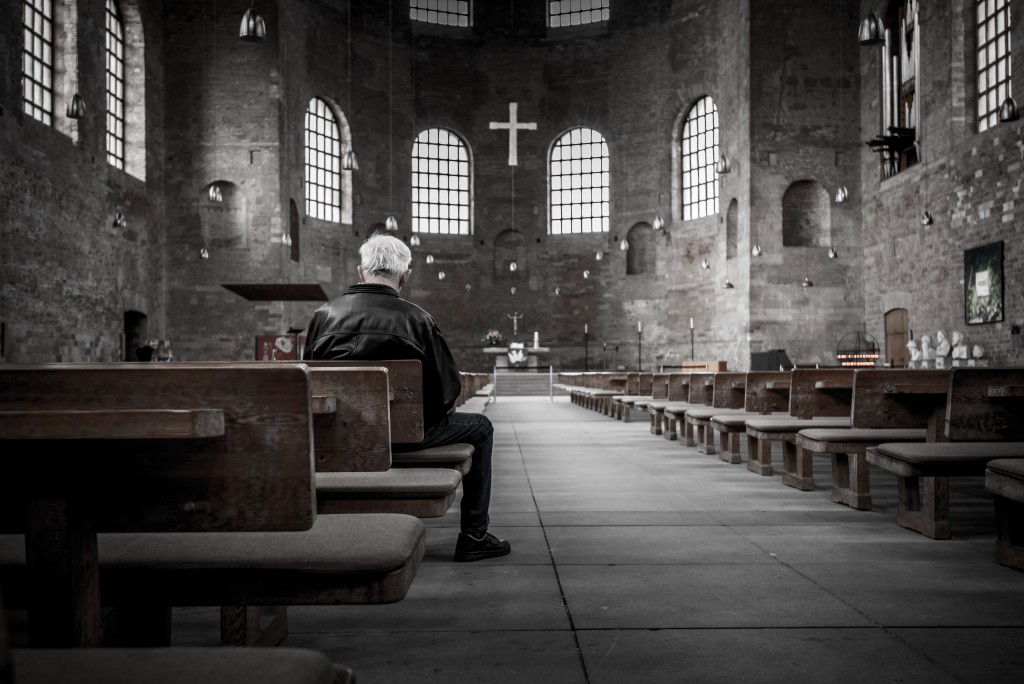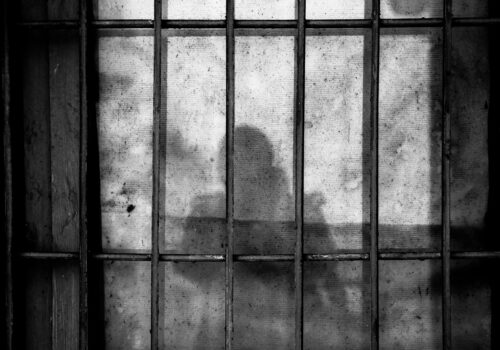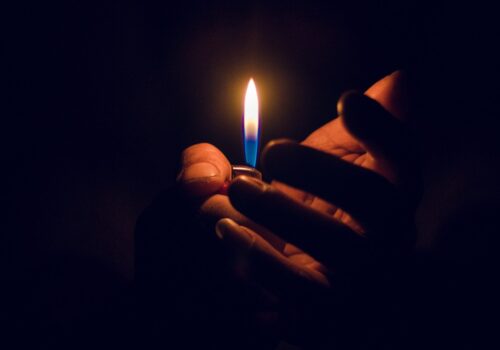Download PDF: Orsi, Doing Religious Studies
* Editors’ Note: This essay is part of the Roundtable on Ethnography and Religion.
This method does not satisfy us. It is a priori. It does not derive its concepts from experience—or at least not from new experiences that it seeks to interpret. It has already formed its concepts; it is already certain of their truth…
—Jean-Paul Sartre, Search for a Method
For a scholar of religion to go among living people practicing the idioms of their religions in the ordinary and extraordinary circumstances of their days is more than one methodological choice among others in the study of religion. To be present in disciplined attentiveness in all the places where human beings come face to face with their gods and with each other, living and dead, for better and for worse, with our judgment held in suspension and the engine of our theory paused, I now believe is the necessary condition for developing knowledge about religion. And not only to be there, but to help men and women carry a sick family member to the healing waters, to be evangelized or harangued, to mill around in the slow empty hours that inevitably attend a religious ritual with others also waiting. Religion is not solely the creation of the scholar’s study. Religion is what scholars of religion engage when they leave their studies and come back to them in time, chastened, unsettled, and no longer so confident in their theories, often distressed in some way, and exhausted. They have glimpsed something real in the company of practitioners and their gods such that they are stretched to the limits of their critical capacities to describe and understand. Disengagement from religious experience (to paraphrase a comment of Richard Rorty’s) produces theoretical hallucinations.
Here I feel compelled to say that this position, which is pedagogical as well as existential and ethical—because what I am proposing is that graduate programs in the study of religion require for all their students a season of self-reflexive fieldwork among religious practitioners and that scholars of religion continue this practice for the rest of their lives—is not premised upon a naïve epistemology that assumes reality or experience impinges directly on us, without the mediations of power and knowledge. But that I even feel the need to point this out is evidence of the problem. Are we really going to deny that we may be brought up short by religious experience, that we may be taken aback, shocked, or unsettled? Or that when we meet the other in the field we apprehend something of us, something denied or desired, in the encounter? It would be the peculiar tragedy of religious studies if the legacy of modern epistemology for the discipline were a shell of self-protection against the anxiety of encountering ways of being in the world that are not already known, not already captured by theory. If this is so, then our knowledge becomes a sickness.
In a recently published autobiographical essay, theologian Marilyn McCord Adams writes that theology is done with one’s whole self, with the crucial caveat that “in the rough and tumble of this world… you cannot wait to do it until your self is whole.”1Does it make sense to say that religious studies is something we do with our whole selves, with our bodies as well as our minds, and that our lives are implicated in our work of thinking about other lives? If the answer to this is no or if the formulation even seems a little ridiculous, then we are directed back to the question of anxiety and its formations. It is a loss to the discipline and to the humanities generally if what religious studies graduate programs create are scholars who already always know what religion is, finding it only in times and places securely within their control, and who are content with an illusory wholeness.
Here is a short list of some of the things contemporary scholars of religion know with the certainty of the axiomatic: (1) religion is not a special or separable aspect of human affairs, but one aspect among others, so that (2) its study does not require or generate unique conceptualizations any different from those of academic disciplines that have to do with other areas of human life, because (3) religious studies is about the human side of religion, not about the non-human, the gods or the supernatural, which is the subject matter for theology, a discipline marginal, at best, to modern critical knowledge, and in any case (4) to study religion requires that we identify the authorizing discourses of social power that make religious beliefs and experiences believable in any time and place, which implies that (5) it is irrelevant to speak to religious persons, because what any one person says or experiences is always already determined. Each dictum is the most recent conclusion of long theoretical debates, but the self-evident authority they hold in the present masks their contingent genealogies. They come to us as already true and to challenge them is nearly unthinkable.
But I have found over the years that ethnography insistently calls these axioms into question. To do fieldwork in religion is to find ourselves in places where we are intellectually and personally vulnerable and where our theories, when we speak some version of them to our interlocutors, sound uncertain, strange, or even hollow. This has proven to be especially so in my recent fieldwork among adults who were sexually abused as children by priests. Survivors of clerical sexual abuse have in one way or another challenged each of the discipline’s certainties, in particular the idea that religion is not a special or separable aspect of human affairs. The vehemence with which these theoretical certainties are contested or the sharpness of their falsity in the context of survivors’ experiences suggests that the stakes of what appear to be simply academic debates are high.
So I’ve learned that it’s of great importance for survivors (and therefore for us, if we hope to understand their experience) to identify the specifically religious aspects both of their abuse and of their subsequent life struggles. As it is, the origins and consequences of the crisis have been publicly framed almost exclusively in terms of law and psychology, as the failure of church authorities, or in relation to a kind of quasi-history (as in the second official report commissioned by the United States Conference of Catholic Bishops, which accounts for the crisis with vague reference to broad societal developments in the 1960s and 1970s2). But here is T. Pitt Green (the pseudonym under which she publishes), a survivor I’ve gotten to know, on the subject of religion and psychology, from her memoir Restoring Sanctuary:
I needed God at the center of my dream for healing, but I did not know it yet…. One therapist wanted me to surrender my idealized fantasy of perfect authority, which she knew did not exist. Her definition of mental health meant I was supposed to accept full responsibility for my own life. Practically, that seemed reasonable. Spiritually, the idea was dangerous. I already felt responsible for the sins of the abusers against me.3
Distinguishing the religious from other aspects of culture is one step in survivors’ projects of reclaiming the fundamental reality of their experience denied or obscured by the agendas and interests of others. It permits survivors to express the full extent of the harm done to them, which was infinitely greater than the available psychological, legal, or sociological languages are adequate to express, because the harm was supernatural, too, at its core.
By making this distinction, moreover, survivors refuse to be labeled (and so dismissed) as sick or troubled or to accede to explanations of the abuse and abusers merely as illegal or perverse (with the damage in this way contained). The language of pathology erases the specificity of the Catholic world abusers and victims shared and forecloses inquiry into ontology, denying that there’s any difference between an abusive priest and an abusive sports coach. But survivors know that every time a rectory housekeeper dutifully and silently opened the door to them as children, fully aware of what was going on in Father’s room, or every time overly trusting parents drove their son or daughter to church—drove me to be abused, as one survivor put it, because I was too young to get there on my own—the reasons for this complicity had to do with the depth and rigor of Catholic religious formation. It was the priest’s identity as alter Christus—the fact that in the Catholic sacred economy the priest alone, marked with the indelible sign of special grace at ordination, has the power to transform bread and wine into Christ’s body and blood, that he alone is empowered to touch God’s body—that protected him from the law and endowed him with a unique sense of sacerdotal impunity and entitlement over the bodies and souls of others. This is what authorized abusive priests to claim that their lusts were sacramental, exemplified by the priest who told one of his victims that receiving his ejaculate was another way of taking God in communion. They may end up in the same prisons, but convicted priests are not the same as other prisoners. Religion matters as religion, precisely because it is not the same as every other form of human activity, as embedded as it inevitably is in these other activities.
Survivors’ experiences challenge us to find ways of understanding God and other non-human figures, holy and demonic, as living and efficacious presences in history, and of approaching the supernatural as a discernible reality in everyday experience. One priest, as documented in the Suffolk County (N.Y.) Grand Jury report, looked up at the crucifix on the wall above the bed on which he was raping a little boy to say, “I’ll talk to you later.”4 This is one story, but there are many like it. Jesus and the Blessed Mother, the angels and the saints are really present or really absent in this crisis; their action or their inaction have real consequences. As Green says of her own life, “For healing, for homecoming, I was seeking relief in the face of God.”5 This requires frameworks adequate to the double victimization of children at the hands of priests—the brutalizing of their souls as well as the scarring of their minds and bodies—and ways of conceptualizing the efficacious role that religion or spirituality played in survivors’ recovery along with, but different from, other idioms of healing. To understand religion adequately as a social and psychological phenomenon means recovering the concepts of the holy and demonic, of the sacred, of transcendence and immanence, and other “theological” terms that theologians themselves have either abandoned or suborned into doctrinal and philosophical squabbles.
This is not instead of the critical languages of the social sciences or the humanities, but in addition to them, so that the reach and meanings of both sets of theoretical languages are extended. In this way the study of religion may make a distinctive contribution to knowledge. The critical, social, and psychological study of religion, in other words, cannot be only about the human side of religion, as reasonable as this sounds. Such a limitation would be a failure of evidence, not of faith; it would mean a deficient or incomplete account of human experience, which is not only human; and it would represent a turning away from the risk of even trying to comprehend the full depths of horror and goodness in human life.
This brings me finally to the idea that scholars of religion do not speak for the people we study, but rather about them. I appreciate the political and moral force of this caution. But a moment has come in all the fieldwork I’ve done over the years when someone sternly cautions me that I’d better get it right. Most recently at a meeting of survivors, a woman who had already agreed to talk with me said out loud to me (and to the others listening to us), “You goddamn better tell the truth.” I told her that in my view the truth is not there waiting to be told, but that it has to be found, or recovered, its context elaborated, and interpreted, that this would be the aim of our conversations, and that’s where we left it for the moment. But I know she also meant: make sure you accurately describe the details of what priests did to me, of how the diocese responded, of what became of my life, and of how I arrived at where I am today. There is a hard core of experience here that must be faithfully acknowledged.
The point is not to reproduce everything we hear and see, as if our task was transcription, or to take the singular as representative or sufficient, or to ignore the circulations of power in all its forms (although we are also responsible to acknowledge that the routes of power are rarely unidirectional and do not always or only follow the expectations and prerogatives of the powerful). We are responsible for attending to silences, to the unintentional, to dispossessions, and to the conditions of life that our interlocutors did not choose for themselves. It especially does not mean the equation or identification of our voices with those of the others, which would be to deny the relationships that constitute fieldwork, relationships in which our interlocutors may call our values and orientations into question.
But human voices and the stories they tell melt more quickly into air today, amid the insane proliferation of chatter in the various media that impinge upon contemporary citizens and the utter transience of any single narrative. This is the environment we work in today. The sound and salience of people’s stories are forever at the edge of extinction, a reality that is effectively manipulated by the powerful. So I think what the call to “goddamn … tell the truth” means is the commitment to be present with our whole bodies to the life of this one person in all its detailed particularity, in the present and in relation to the past as he or she remembers it, and then of another’s and of another’s, to lift these stories up from the distractions of contemporary culture by giving them as precise a rendering as we can, to make them vividly present on the flat landscape of neoliberal universalism where difference is assiduously erased. In this way we multiply the countries heard from, to borrow a phrase of Geertz’s—or in the case of religious studies, we multiply the divergent ontologies heard from—in particular that country we inhabited for some period of time together with our interlocutors.
Notes
- Marilyn McCord Adams, “Truth and Reconciliation,” in Theologians in Their Own Words, ed. Derek R. Nelson, Joshua M. Moritz, and Ted Peters (Minneapolis: Fortress Press, 2013), 24.
- Karen J. Terry, Principal Investigator, The Causes and Context of Sexual Abuse of Minors by Catholic Priests in the United States, 1950-1920: A Report Presented to the United States Conference of Catholic Bishops by the John Jay College Research Team(Washington, D.C.: United States Conference of Catholic Bishops, 2011). The full report may be found at: http://www.usccb.org/issues-and-action/child-and-youth-protection/upload/The-Causes-and-Context-of-Sexual-Abuse-of-Minors-by-Catholic-Priests-in-the-United-States-1950-2010.pdf (accessed February 14, 2013).
- T. Pitt Green, Restoring Sanctuary(Indianapolis: Dog Ear Publishing, 2010), 77, 79.
- Suffolk County Supreme Court Special Grand Jury, May 6, 2002, http://www.bishop-accountability.org/reports/2003_02_10_SuffolkGrandJury/, quotation found on page 11 (accessed February 21, 2013).
- Green, Restoring Sanctuary, 79.






